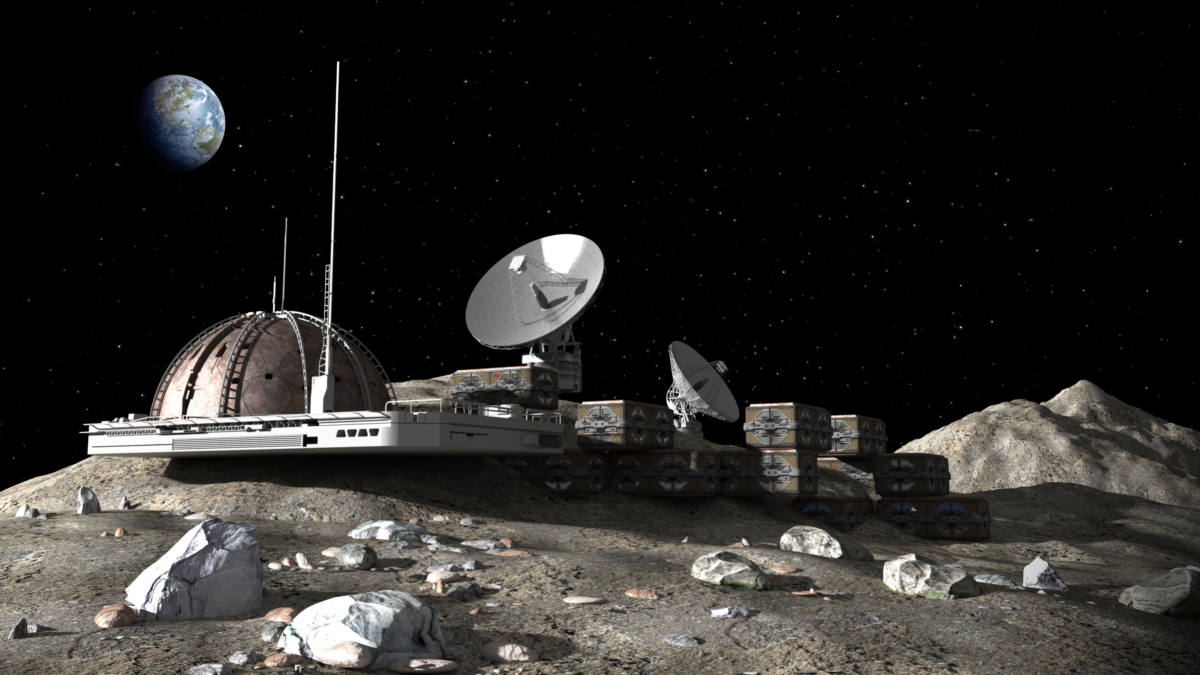 The UK Space Agency has commissioned the National Nuclear Laboratory (NNL) to develop Americium-241 fuel for space batteries at its new GBP19 million ($23m) laboratory in Cumbria.
The UK Space Agency has commissioned the National Nuclear Laboratory (NNL) to develop Americium-241 fuel for space batteries at its new GBP19 million ($23m) laboratory in Cumbria.
Radioisotope Power Systems (RPSs) – space batteries – release heat as the radioactivity within them decays. The heat can either be used directly to prevent spacecraft from freezing or can be converted into electricity to provide onboard power. An RPS can operate for decades without maintenance.
NNL began working on this project in 2009 in response to a request from the European Space Agency (ESA), when its researchers first discovered that Americium-241, an alternative to Plutonium-238, is produced during the radioactive decay of used fuel from nuclear reactors and that it emits power for over 400 years. Until now, spacecraft have been powered by Plutonium-238, which is produced only in the USA, where supply is limited, and Russia. ESA was therefore unable to develop and control its own space missions and sought an alternative fuel.
NNL joined a team to carry out an initial scoping study and discovered that as the plutonium from used nuclear fuel decays it forms Americium 241 - a heat producing radioisotope with similar properties to Plutonium 238. Moreover, Americium 241 has a half-life of around 430 years compared with around 90 years for Plutonium 238, making it more suitable for long missions. And, as there are over 100 tonnes of civil separated plutonium in the UK alone, NNL realised that Americium 241 offered the potential to be a long-term, sustainable energy source.
Support for NNL from the UK Space Agency followed UK investment ESA for a range of new programmes, including GBP22 million for ENDURE (European Devices Using Radioisotope Energy), which will use radioisotopes to develop space batteries.
Scientists at NNL in 2019, following a decade of research, were able to use the heat from a small amount of Americium-241 extracted from stored fuel to generate electric current for a small lightbulb. Having successfully produced Americium-241 at gram scale, NNL is now expanding to production at industrial scale at its new Central Laboratory in Cumbria where NNL scientists will turn the Amercium-241 into pellets ready to load and test in a space battery. The laboratory expansion in Cumbria will be operational by 2027 and the fuel it produces is expected to be first used on the ESA’s Argonaut mission to the Moon and for future missions into deep space.
UK Science Minister George Freeman said: “Being able to offer a globally unique supply of Americium-241 will encourage investment and unlock growth opportunities for all sorts of UK industries looking to explore nuclear energy.” Dr Paul Bate, CEO at the UK Space Agency said: “Supporting the National Nuclear Laboratory’s expansion will make the UK the only country in the world capable of producing this viable alternative to Plutonium, reducing the global space community’s reliance on limited supplies, which are increasingly difficult and costly to obtain.”
The amount of Americium-241 needed for space applications is huge compared with current usage, where it is found in most household smoke detectors in microgram quantities – about 0.3 micrograms in each. One gram of americium oxide provides enough active material for more than three million household smoke detectors. Its cost is about $1500 per gram. ESA is currently seeking a few grams of americium and NNL’s new laboratory will be able to produce this.
Image: 3D Illustration of a lunar base with a dome structure, research modules, observation pods and communication satellite dishes for space exploration and science fiction backgrounds (courtesy of NNL)



